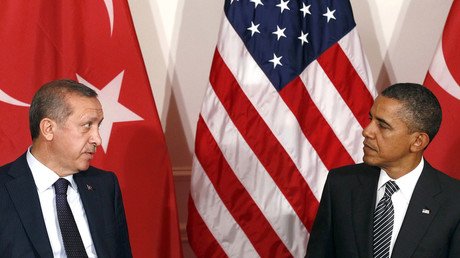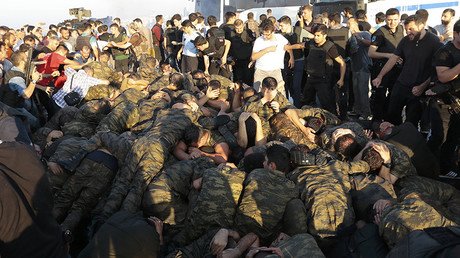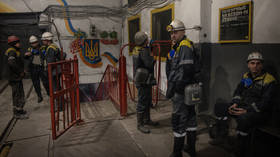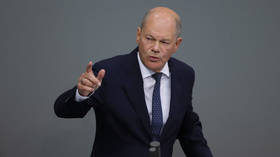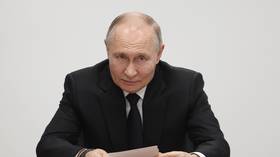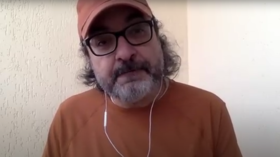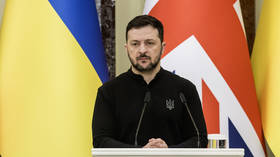Erdogan says Turkish people want death penalty reintroduced, slams EU for ‘inaction’
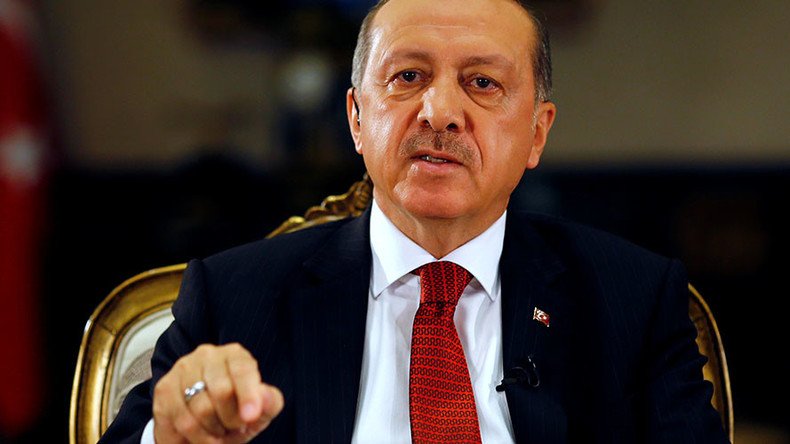
Turkey’s president, Recep Tayyip Erdogan, said his government would ensure that the Turkish people’s “call” to reinstate the death penalty in wake of the failed coup is heard despite the EU’s warning that it would bring accession talks to a halt.
LIVE UPDATES: #TurkeyPurge: Post-coup crackdown
In a Monday interview with a German broadcaster ARD, Erdogan pledged to follow up on his promise to reintroduce capital punishment if such a request is submitted by the country’s parliament, saying the government could not ignore the will of the people.
“What do the [Turkish] people say today? They want the death penalty reintroduced. And we as the government must listen to what the people say. We can’t say ‘no, that doesn’t interest us,’” he stressed, while adding that he cannot reinstate the punishment by himself.
“I am not a king. I am only a country’s president. To be a stronger president does not mean to act in breach of constitution,” he noted, pointing out that capital punishment is not considered an abnormal practice anywhere in the world save Europe.
“Only in Europe is there no death penalty. Otherwise, it is almost everywhere,” he stressed.
Calls to reintroduce the death penalty, which was abolished by Turkey in 2004 in order to facilitate its acceptance as an EU member, have come amid a clampdown on the military and civil servants following a failed coup attempt. Over 13,000 people, largely soldiers, have been detained in the massive purges that have followed.
“Yes, it was the most critical point of my political life,” Erdogan said in referring to the coup attempt, labeling it “an attack on the people.”
Turkey back to business as usual with purges nearly over - PM https://t.co/05myAtWZ53pic.twitter.com/eqgsulLZzJ
— RT (@RT_com) 25 июля 2016 г.
More than 45,000 public servants have been suspended and over 21,000 teachers have been stripped of their licenses since the chaotic events of July 15, which saw at least 265 people killed. On Monday, 42 Turkish journalists were arrested on government orders.
The cleanse of Turkey’s military and civil ranks has prompted sharp criticism from the European Union, with EU Commission President Jean-Claude Juncker saying Turkey “in its current state, is not in a position to become a member any time soon and not even over a longer period.”
Moreover, Juncker said that if Turkey reinstated the death penalty, it would close the door to any possibility of the country joining the block.
The post-coup crackdown soured already deteriorating relations between the EU and Turkey, with Erdogan blaming Europe’s leaders for failing to deliver on the promises they made in the EU-Turkey refugee deal, which Europe sees as key to stemming the flow of illegal migrants to the continent.
Speaking to ARD, the Turkish president said “The European leaders are not sincere,” stressing that Turkey had received no more than $2 million in financial aid from the EU so far, while spending $12 million alone on some three million Syrian refugees.
“Three billion was promised,” Erdogan noted, before accusing the EU of inaction.
The comprehensive EU-Turkey refugee deal, which came in force on March 20, stipulated that Turkey would take in all illegal migrants entering Europe via its territory in exchange for speeding up EU accession and allowing Turkish citizens to travel to the EU without a visa. The visa-free pass was initially to be introduced by July, however, Turkey has failed to comply with all of the EU’s 72 criteria, including relaxing its stringent anti-terror legislation, which became a sticking point in the negotiations.
READ MORE: Former NATO commander ‘behind failed coup against Erdogan’ – Turkish daily
Turkey’s president has blamed the conspiracy to overthrow his regime on US-based exiled cleric Fethullah Gulen, who vehemently denies any allegations of complicity. According to Erdogan, Gulen created an intricate “parallel network” of supporters, including military, judicial, and political officials, as well as media and education workers, to stage the coup. Turkey is now demanding Gulen’s extradition from the US, where he has been living since 1999 in the state of Pennsylvania.
However, Washington has insisted that hard evidence be provided before it will consider the request.
